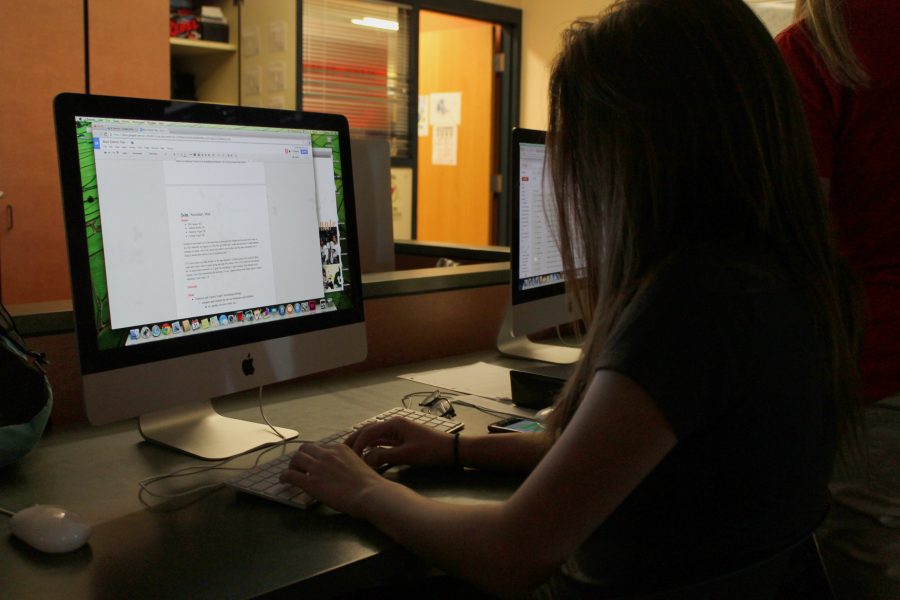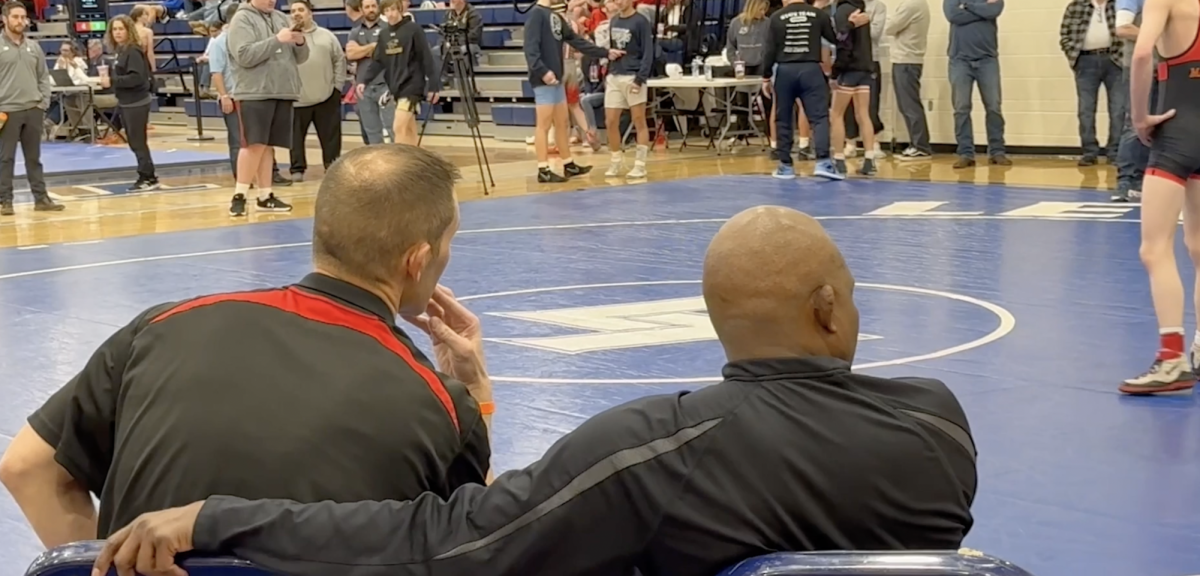By Jane Boyd –
The View –

Freshman Kristen Plonsky came to school when she was sick because she couldn’t deal with the stress of falling behind. But staying up late to do work and getting up early to meet with teachers only made Plonsky’s immune system fall behind even more.
“I would miss too much school, yearbook and track,” she said about why didn’t want to stay home. “My health is definitely not more important than my school work — or at least that’s the way it’s perceived.”
Plonsky is one of many students who often become sicker because they don’t stay home and rest when they first become ill.
Although Plonsky’s parents encouraged her to stay home, she dreaded the thought of missing school. Even missing school for appointments adds stress.
But Plonsky isn’t the only student coming to school sick. Many students “don’t want to miss school,” health assistant Delana Hoogeboom said. “They don’t want to fall behind in their classes.”
During cold and flu season, which generally lasts from November to March, the nurse’s office sees from three to 12 people a day.
Plonsky, who came down with a cold that later turned into a sinus infection in late February, tries to stay healthy by eating right, exercising and washing her hands frequently. But she feels she can’t do her best work when she coughs and sniffles throughout the day.
During track practice, she uses an inhaler to help with breathing, but even with that she still doesn’t think she is performing as well as she can.
She has done her best to get better, taking antibiotics and trying to sleep a continuous six hours every night.
Based on the study from the National Sleep Foundation, the typical teenager needs eight to 10 hours of sleep. Plonsky tries to sleep as much as she can, but her high school and athletic schedule does not allow that, she said.
“When I get home from track and do all my homework, by the time I turn the lights off for bed is around midnight,” she said. “And I get up the next morning around six. It is a continuous cycle.”
Hoogeboom said to stay healthy students need to “get plenty of rest, drink lots of fluids, eat right, exercise and wash your hand regularly.”
At this point, Plonsky doesn’t even notice how much she coughs or sniffles. “It’s like I’m immune to it, yet I still am sick — even though blowing my nose in the middle of class is still really awkward.”
And she isn’t worried about not getting better. No matter what, she knows she’ll pull through and keep going.
“When I first started to get sick, I thought it would pass in at least a week,” Plonsky said. “But as my schedule got more and more rigorous and stressful, it became apparent to me I wasn’t going to be healthy anytime soon.”







